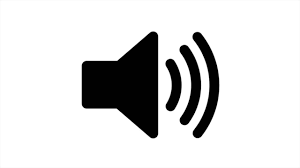 Do you have a sound disorder such as Misophonia? A person munching or chomping, a friend yawning with mouth wide open, a classmate coughing, or sneezing, or your sibling who snores while sleeping –all may drive you crazy. These sounds may cause you discomfort, anxiousness, or disgust. The intensity of hatred for a specific sound may even urge you to fight or run away.
Do you have a sound disorder such as Misophonia? A person munching or chomping, a friend yawning with mouth wide open, a classmate coughing, or sneezing, or your sibling who snores while sleeping –all may drive you crazy. These sounds may cause you discomfort, anxiousness, or disgust. The intensity of hatred for a specific sound may even urge you to fight or run away.
If certain sounds like these frustrate you, you are likely to have Misophonia – a sounding disorder compelling you to hate or dislike selective sounds.
What is Misophonia?
Every day, your auditory senses perceive thousands of sound signals –possibly beginning with a buzzing alarm. Some may be pleasant to your ear, but certain sounds may be intriguing; this happens when you have Misophonia –in such condition, selective sounds trigger you emotionally or physiologically.
Sounds as common as sniffing, coughing, walking, or even brushing teeth that usually go unnoticed, may cause an overly emotional response from you. Despite trying hard to overcome the annoyance, you may end up fighting with the producer of the sound or develop a desire to escape from the scene. The emotional distress to specific sounds is also called Selective Sound Sensitivity Syndrome.
Researchers have found that a person may react to the visual stimuli the sound accompanies. They suggest that your brain may have trouble filtering the repetitive sounds if you are misophonic. The repetitive stimuli may then lead to other auditory problems.
What Causes Misophonia?
Sounds are more likely to trigger you emotionally at the age of 9 or 12 –but you may feel irritated to a sound at any stage of life. In some cases, anxiety may be lifelong. What exactly causes a disliking to a specific sound is not known. It is difficult for doctors to classify misophonia, as they are often unaware of the condition.
The doctors believe that being misophonic is not a hearing impairment –your ears are not the problem –it is your brain that is affected and triggers the emotional response. The condition of a misophonic person may be confused for obsessive-compulsive disorder or anxiety. Some doctors also suggest that misophonia, itself, is a new disorder.
Your Brain Has A Part in Misophonia
 A recent study has revealed that the brain plays a key role in emotions like anger and assimilating the outer inputs (sounds) with the internal input from organs like lungs and heart. The parts of the brain taking care of long-term memories, fear, anger, and other emotions also cause one to experience misophonia.
A recent study has revealed that the brain plays a key role in emotions like anger and assimilating the outer inputs (sounds) with the internal input from organs like lungs and heart. The parts of the brain taking care of long-term memories, fear, anger, and other emotions also cause one to experience misophonia.
How to Cope with Misophonia
- Do not isolate yourself. Try to overcome the stress you experience due to selective sounds. Breathing exercise is effective in releasing stress.
- Relax your mind with sounds that please you. Keep your headphones around and enjoy your favorite music or podcast to tune out the triggers.
- Sound therapy sessions with audiologists and counseling and support from friends and family may also help. Talk to people; it helps to solve problems.
- Regular exercise and proper routine sleep will also help to overcome annoyance.
Bottom Line
The struggle with Misophonia is real. It may have some serious effects on your daily functioning, your social life, and ultimately your mind peace. If you are misophonic, we are here to help.
Contact us and book an appointment with Misophonia Cognitive Center in NYC.
